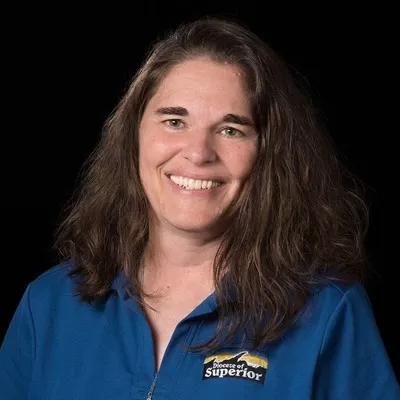Anita Draper
Catholic Herald staff
On the first weekend of Lent, Feb. 17-18, priests across the Diocese of Superior are tasked with preaching about the pervasiveness and harmful effects of pornography. The diocese’s primary aim is to alert parents to the necessity of discussing the dangers with their children, beginning at grade-school level, and monitoring their use of technology.
Loree Nauertz, associate director of the Office of Evangelization & Missionary Discipleship, said Safe Haven Sunday – an initiative created by the Catholic Christian filtering service Covenant Eyes – is a response to a U.S. Conference of Catholic Bishops document entitled, “Create in Me a Clean Heart: A Pastoral Response to Pornography.”
Nauertz said the diocese’s vision is make parents aware that the $8 billion porn industry targets 8-year-olds. There are 43 million pornographic sites online; exposure used to mean that children saw an explicit photo or magazine. Now, they might encounter videos with violence, verbal and physical abuse and deviant behaviors that could negatively impact their health – emotionally, mentally and sexually – for years to come.
Mother of six boys ages 12 to 24, Nauertz knows the difficulty of confronting the issue.
“This is a beast,” she confirmed. “This is an absolute beast to address.”
Statistically, nearly 80 percent of men ages 18-30 view pornography monthly, and 63 percent admitted to viewing it more than once a week. The numbers were lower for women – 34 percent and 19 percent, respectively – and according to the American College of Pediatricians, data is similar for younger age groups.
Exposure comes young; the organization cites two studies. One English study found one-third of surveyed teens had seen porn by age 10, and an American study found half of boys and one-third of girls had been exposed by age 13.
The behavior is fundamentally addictive, but there’s a host of other problems – depression, anxiety, a distorted view of sexuality, males’ increased acceptance of rape and sexual aggression, females’ increased risk of being sexually manipulated, promiscuity, dissatisfaction with future partners, higher risk of future divorce and many more – that arise from pornography use.
“In sum,” the American College of Pediatricians advised in “The Impact of Pornography on Children,” a document released in 2016, “children exposed to pornographic material are at risk for a broad range of maladaptive behaviors and psychopathology.”
Most parents, grandparents and members of the wider community are aware of the need to protect children from explicit content; however, they may not know how readily accessible it is.
Discussing the topic with a teen, Nauertz said he advised that parents really need to understand the technology of phones. If you use parameters and filters, teens are “superfast” at knowing how to adjust them, he told her. Or, they can just use guest mode and erase their history.
“I don’t think they quite understand when you give your kids a phone, they have direct access to pornography,” she said.
Parents who are diligent about monitoring their kids’ use of technology at home may not be there when their children are exposed via someone else’s phone, whether they are hanging out with friends or just walking around at school.
Explicit materials “used to be hidden behind a counter,” Nauertz said. “Now, kids are in the hallways looking at pornography on their phones. They are sitting at the lunch table watching videos.”
“How do I know this?” she asked. “Because my kids tell me.”
According to Covenant Eyes, an online filtering service, more than 70 percent of teens hide their online behavior from their parents. There’s also widespread acceptance among the young; “90 percent of teens and 96 percent of young adults are either encouraging, accepting or neutral when they talk about porn with their friends,” the covenanteyes.com site warns.
“And kids lie about it,” Nauertz summarized. “They know their parents wouldn’t approve. It’s so prevalent. And people are not even aware that it’s causing these major effects.”
Safe Haven Sunday presents an annual opportunity for clergy to highlight the church’s teachings on sexuality, beginning with Pope St. John Paul II’s observation, “There is no dignity when the human dimension is eliminated from the person. In short, the problem with pornography is not that it shows too much of the person, but that it shows far too little.”
“Sexuality is a gift,” Nauertz emphasized. While teaching children to avoid pornographic content, parents should also telling them about the beauty of sexuality, she said.
Convenanteyes.com has resources for anyone interested in quitting porn or healing damaged relationships, whether for themselves or their spouses, children or friends. The site offers free articles, blog posts, podcasts, ebooks and more.
Offering a ‘safe haven’ for kids
Loree Nauertz
Associate director, Office of Evangelization & Missionary Discipleship
“All parents should be aware that this is an issue that they will have to confront one day. If they don’t, they are doing their children a disservice. If parents become aware of the pervasiveness and harmful effects of pornography and how to combat the pornography industry sooner than later, then when their children are exposed to it, they will be much more equipped to effectively address the issue in a calm, loving matter. Having open communication with your children is vitally important in addressing this issue. As parents, if you talk openly and lovingly with your children about everything, your children will hopefully come to you when they are exposed to it. Children need to know that their parents are not going to condemn them, but rather, they are going to help them navigate through the technology world which the pornography industry uses to benefit their pocketbooks.
“I just hope parents will be willing to talk about uncomfortable topics/issues with their children. Children really do need a safe haven to run to in this culture. What better place is there to go to than the home where they are surrounded by people who love them the most and have their best interest in mind?”

Loree Nauertz
